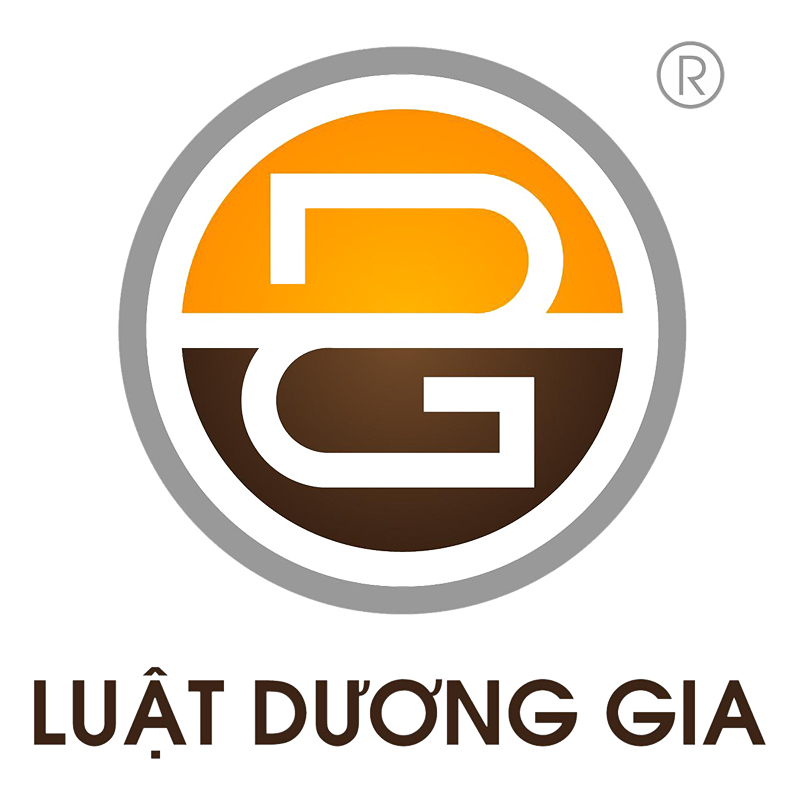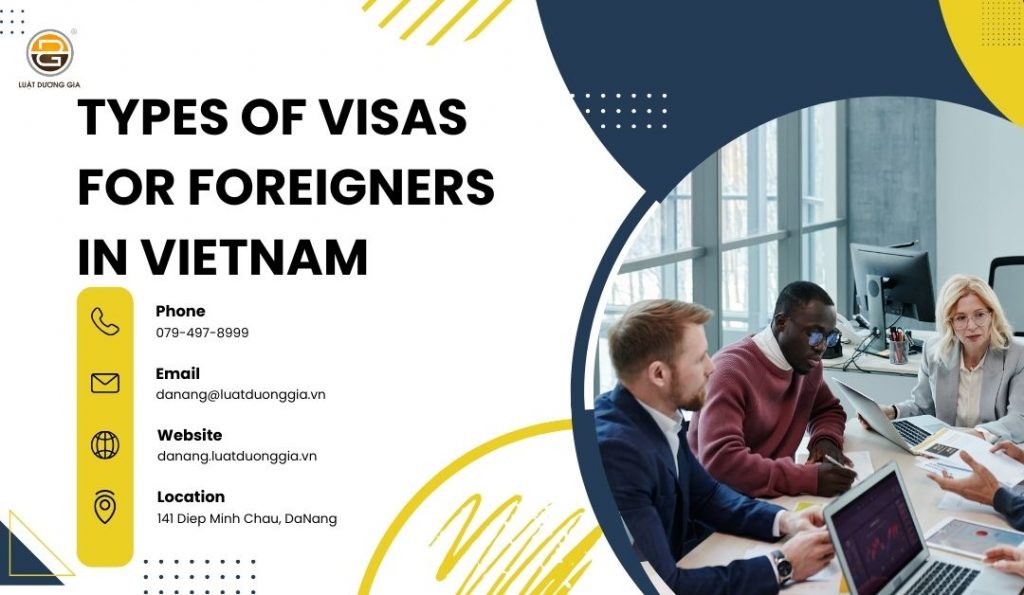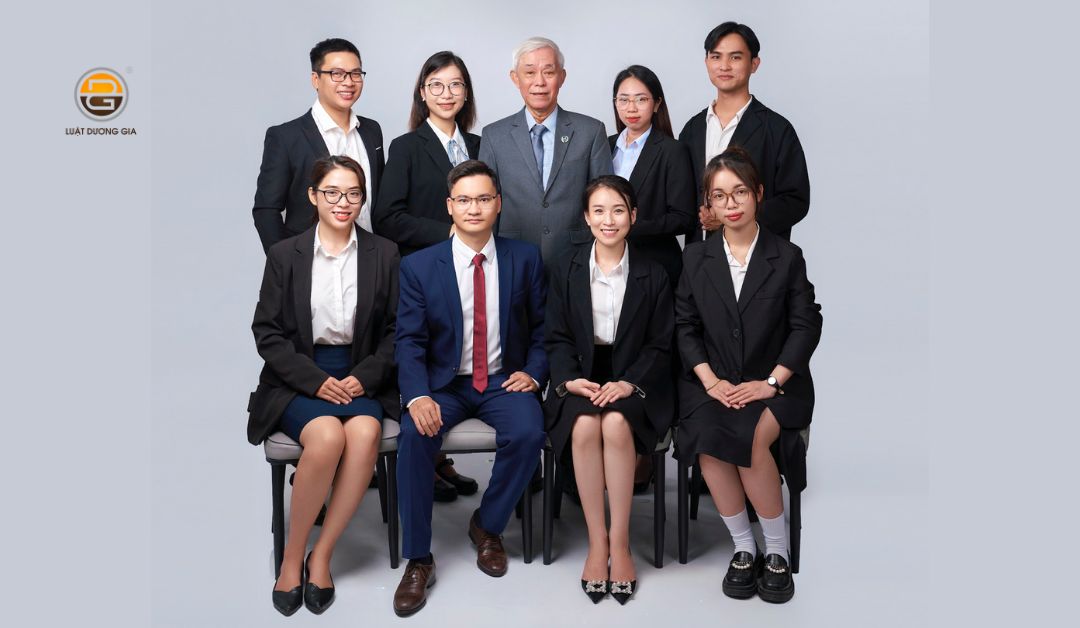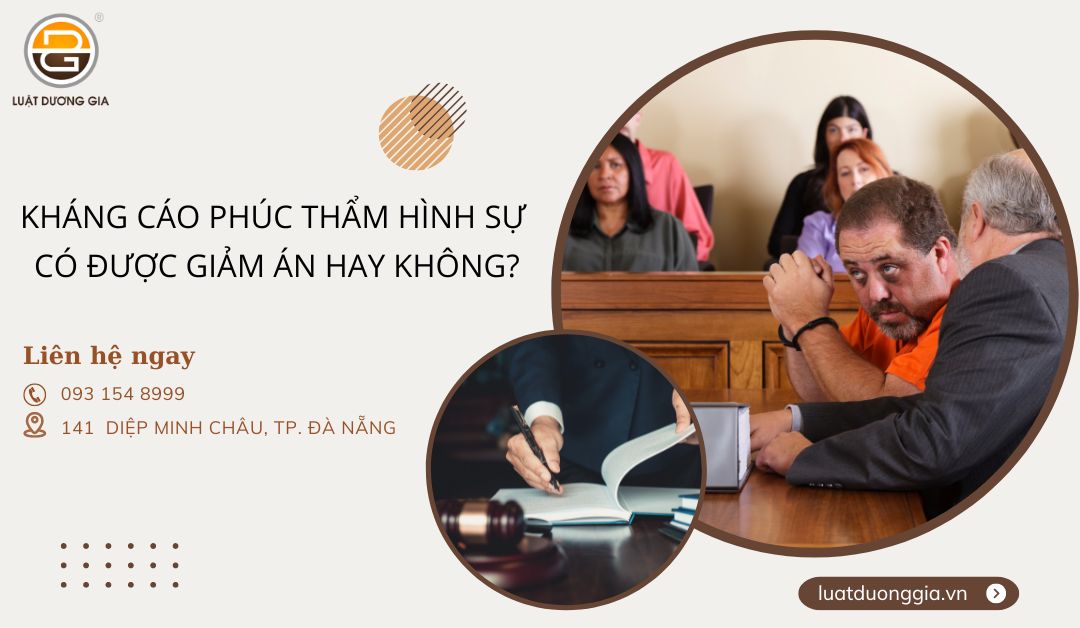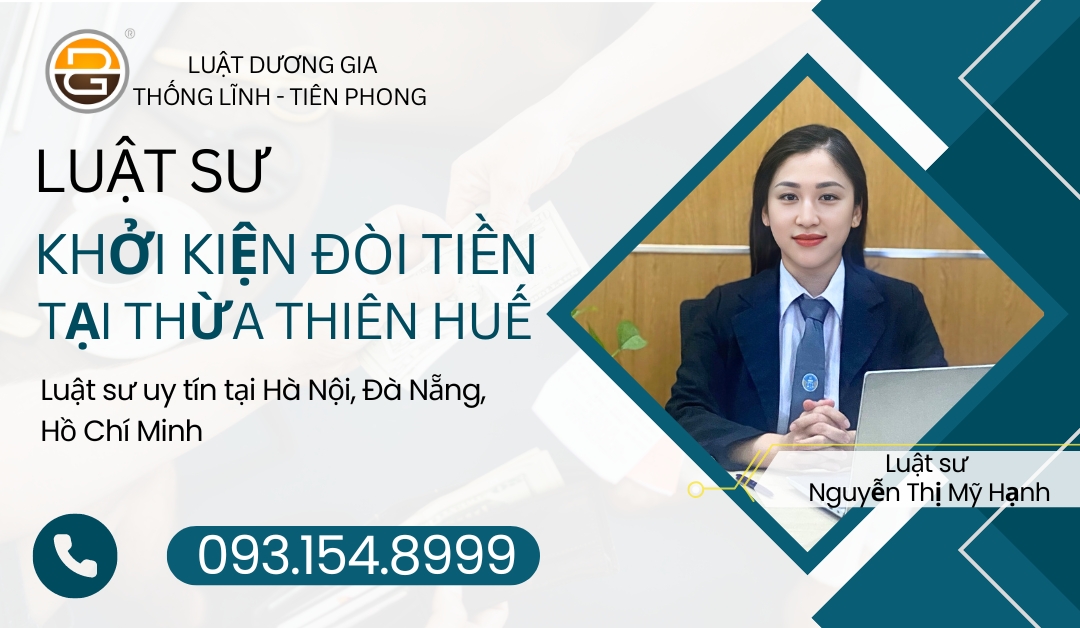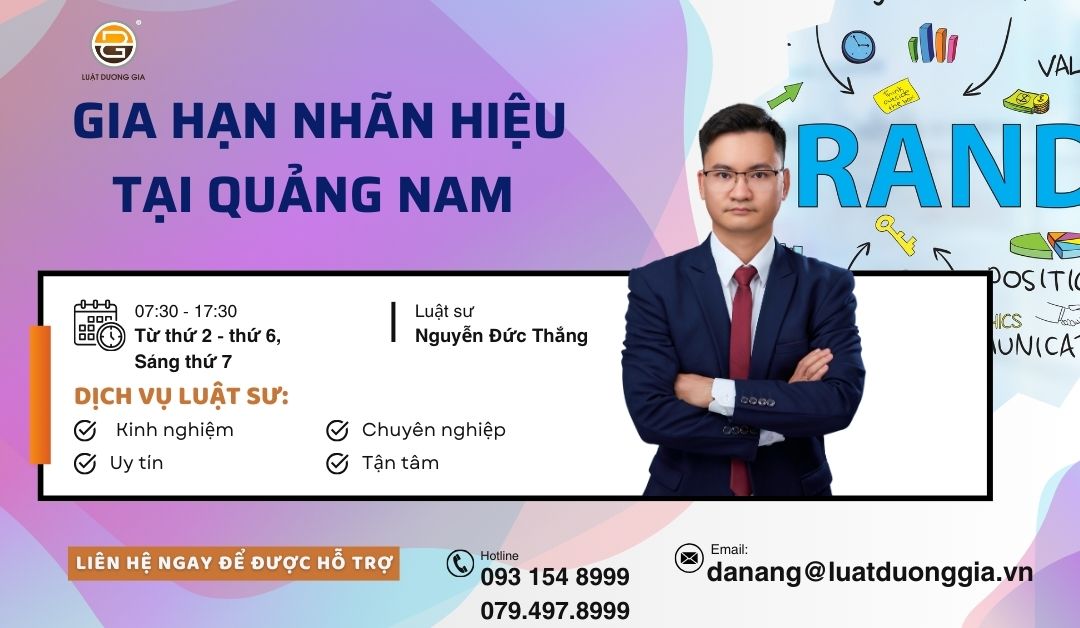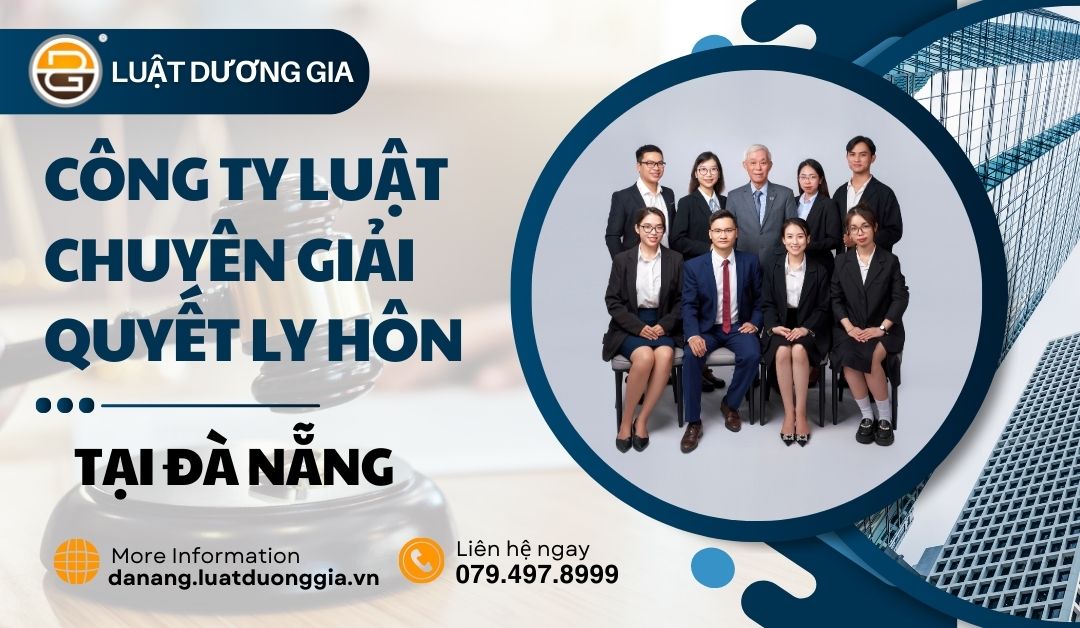Vietnam is an attractive destination, attracting a large number of foreigners to travel, work, invest and live for a long time. To meet the diverse needs of foreigners upon entry, Vietnam offers many different types of visas suitable for each purpose such as tourism, business, investment, or work. Choosing the right type of visa not only helps foreigners stay legally but also facilitates the process of entry and long-term stay.
In order to help foreigners solve this problem quickly and conveniently, the lawyer services of Duong Gia Law is a reliable choice. With more than 10 years of experience in the field of legal advice for foreigners, Duong Gia Law owns a team of prestigious and professional lawyers in 3 regions of the North, Central, and South (Hanoi, Da Nang, Ho Chi Minh), always ready to support clients in applying for visas, extending visas, etc and other accommodation procedures.
DUONG GIA LAW FIRM – DA NANG BRANCH
Address: 141 Diep Minh Chau, Hoa Xuan Ward, Cam Le District, Da Nang City
Phone: 0931548999; 02367300899
1. Conditions for foreigners allowed to enter Vietnam
Foreigners are allowed to enter Vietnam when they meet the appropriate conditions and purposes of entry in accordance with the provisions of Vietnamese law
Pursuant to Article 20 of the Law on Entry, Exit, Transit, and Residence of Foreigners in Vietnam 2014 amended by Clause 11, Article 1 of the Law on Entry, Exit, Transit and Residence of Foreigners in Vietnam amended in 2019 stipulating entry conditions:
“Entry conditions:
1. Foreigners are allowed to enter Vietnam when they fully meet the following conditions:
a) Having a passport or papers valid for international travel and a visa, except for cases of visa exemption under the provisions of this Law.
Foreigners entering the country under the unilateral visa exemption category must have a validity period of at least 06 months;
b) It does not fall into the category of not being allowed to enter the country specified in Article 21 of this Law.
2. Foreigners using e-visas must fully meet the conditions specified in Clause 1 of this Article and enter through international border gates decided by the Government.”
Thus, foreigners entering Vietnam must meet the following conditions:
(i) Have a passport or document valid for international travel and a visa. Except for visa exemptions
- According to international treaties, Vietnam is a signatory.
- Use permanent residence cards and temporary residence cards as prescribed.
- Entering border-gate economic zones, special administrative-economic units.
- The government shall decide to enter the coastal economic zone.
- Overseas Vietnamese who have passports or papers valid for international travel issued by foreign competent agencies and foreigners who are their spouses or children;
- Foreigners who are spouses and children are exempt from visas according to the Government’s regulations.
- Unilateral visa exemption.
(ii) Not being allowed to enter the country as follows:
- Not eligible for entry.
- Children under the age of 14 are unaccompanied by a parent, guardian, or authorized person.
- Forging papers, making false declarations to be granted valid papers for entry, exit, or residence;
- Persons suffering from mental illness or infectious diseases that endanger public health;
- Being expelled from Vietnam for less than 03 years from the effective date of the expulsion decision;
- Being forced to leave Vietnam for less than 06 months from the effective date of the decision on forced exit;
- For reasons of epidemic prevention and control;
- For reasons of natural disasters;
- For reasons of national defense, security, social order, and safety.
2. Current types of visas for the purpose of entry
| Visa Type (Visa) | Granted to subjects |
| NG1 | Issued to members of the guest delegation of:
– General Secretary of the Central Committee of the Communist Party of Vietnam; – The President; – Chairman of the National Assembly; – The Prime Minister. |
| NG2 | Issued to members of the guest delegation of:
– Standing Committee of the Secretariat of the Central Committee of the Communist Party of Vietnam; – Vice President; – Vice Chairman of the National Assembly; – Deputy Prime Minister; – Chairman of the Central Committee of the Vietnam Fatherland Front; – Chief Justice of the Supreme People’s Court; – Procurator General of the Supreme People’s Procuracy; – The State Auditor General; – Members of the guest delegation of the same level of the Minister and equivalent; – Secretary of the Provincial Party Committee; – Secretary of the City Party Committee; – Chairperson of the People’s Council; – Presidents of People’s Committees of provinces and centrally-run cities. |
| NG3 | Granted to the following subjects and their spouses, children under 18 years of age, and maids accompanying them for the following terms:
– Members of diplomatic missions; – Members of consular offices; – Members of representative missions of international organizations of the United Nations; – Members of representative offices of intergovernmental organizations |
| NG4 | Granting to persons entering the workforce and their spouses and children under 18 years of age accompanying them, visiting members of:
– Diplomatic missions; – Consular offices; – Representative missions of international organizations of the United Nations; – Representative agencies of intergovernmental organizations. |
| LV1 | Granted to persons who come to work with:
– Departments, agencies and units directly under the Central Committee of the Communist Party of Vietnam; – The National Assembly, the Government, the Central Committee of the Vietnam Fatherland Front, the Supreme People’s Court, the Supreme People’s Procuracy, the State Audit Office, ministries, ministerial-level agencies and agencies attached to the Government; – Provincial Party Committees, City Party Committees, People’s Councils, People’s Committees of provinces and centrally-run cities. |
| LV2 | Granted to persons who come to work with:
– Socio-political organizations; – Social organizations; – Vietnam Chamber of Commerce and Industry. |
| LS | Granted to foreign lawyers practicing in Vietnam. |
| Phone1 | Granted to foreign investors in Vietnam and representatives of foreign organizations investing in Vietnam with contributed capital of VND 100 billion or more or investing in industries and trades eligible for investment incentives or geographical areas eligible for investment incentives decided by the Government. |
| DT2 | Granted to foreign investors in Vietnam and representatives of foreign organizations investing in Vietnam with contributed capital valued at between VND 50 billion and less than VND 100 billion or investment in industries and trades encouraged for development investment decided by the Government. |
| DT3 | Granted to foreign investors in Vietnam and representatives of foreign organizations investing in Vietnam with contributed capital valued at between VND 3 billion and less than VND 50 billion. |
| DT4 | Issued to foreign investors in Vietnam and representatives of foreign organizations investing in Vietnam with contributed capital valued at less than VND 3 billion. |
| DN1 | Granted to foreigners working with other enterprises and organizations with legal status in accordance with Vietnamese law. |
| DN2 | Grant to foreigners to offer services, establish commercial presences, and carry out other activities under treaties to which Vietnam is a signatory. |
| NN1 | Granted to persons who are heads of representative offices and projects of international organizations and foreign non-governmental organizations in Vietnam. |
| NN2 | Issued to heads of representative offices, branches of foreign traders, representative offices of foreign economic, cultural organizations and other professional organizations in Vietnam. |
| NN3 | Granted to persons working with foreign non-governmental organizations, representative offices, branches of foreign traders, representative offices of foreign economic, cultural and other professional organizations in Vietnam. |
| DH | Granted to people who enter internships and studies. |
| HN | Issued to persons attending conferences and seminars. |
| PV1 | Issued to reporters and journalists permanently residing in Vietnam. |
| PV2 | Issued to reporters and journalists in short-term activities in Vietnam. |
| LD1 | Granting to foreigners working in Vietnam with a certificate that they are not subject to work permits, unless otherwise provided for by treaties to which Vietnam is a signatory. |
| LD2 | Granting to foreigners working in Vietnam who are required to have a work permit |
| DL | Issued to people entering tourism. |
| TT | Issued to foreigners who are spouses and children under 18 years of age of foreigners who are granted visas with the symbols LV1, LV2, LS, DT1, DT2, DT3, NN1, NN2, DH, PV1, LD1, LD2 or foreigners who are parents, spouses or children of Vietnamese citizens. |
| VR | Granted to people visiting relatives or for other purposes. |
| SQ | – Persons who have working relations with agencies competent to issue Vietnamese visas abroad and their spouses or children or persons with written requests of competent agencies of the Ministry of Foreign Affairs of the host country;
– Persons who have a note of guarantee from diplomatic missions or consulates of countries located in the host country. |
| EV | E-Visa. |
3. Visa classification according to visa validity time and number of entries into Vietnam
In addition to classifying visas according to the purpose of entry, the classification of visas is also based on the validity period and the number of entries into Vietnam. Regulations on Vietnam visa types are divided into:
- 1-month single-entry visa.
- 2-month multiple-entry visa.
- 3-month single-entry visa.
- 3-month multiple-entry visa.
- 6-month multiple-entry visa.
- 1-year multiple-entry visa.
The main difference between a single-entry visa and a multiple-entry visa is the number of times visitors are allowed to enter Vietnam. The 1-entry visa only allows visitors to enter Vietnam once. After leaving Vietnam, visitors need to apply for a new visa to re-enter the country. Meanwhile, multiple-entry visas allow visitors to freely enter and exit Vietnam within the duration of the visa.
4. Who is exempt from visa fees in 2024?
According to the provisions of Clause 1, Article 5 of Circular 25/2021/TT-BTC, the following subjects will be exempt from visa fees in 2024, including:
- Guests (including spouses and children) of the Party, State, Government, National Assembly or leaders of the Party, State, Government or National Assembly are invited as individuals.
- Officials and employees of diplomatic missions, foreign consular offices and representative offices of international organizations in Vietnam and their family members (spouses and children under 18 years old), regardless of passport type, are not Vietnamese citizens and do not permanently reside in Vietnam will be exempt on a reciprocal basis.
- In case of exemption under international treaties which Vietnam has signed or acceded to or on the principle of reciprocity.
- Foreigners enter Vietnam to perform relief work or humanitarian assistance for Vietnamese organizations and individuals.
- Free of charge for the case of granting visas or temporary residence to foreigners in Vietnam who violate the law but have no financial capacity and the representative mission of the country where the citizen has not borne the funding or has no representative mission of the country whose citizen has violated the law in Vietnam.
The determination of foreigners in Vietnam who violate the law to be handled free of charge, in this case, shall be considered and decided by the fee-collecting organization on a case-by-case basis and take responsibility in accordance with the law.
Notes when classifying visas by purpose of entry
When categorizing visas by purpose of entry, keeping in mind important points helps ensure a smooth and efficient entry and exit process. Here are some important considerations when classifying visas:
- Understand the purpose: Before applying for a visa, applicants need to understand the purpose of entry. This purpose can be traveling, visiting family, studying, working, doing business, or attending an event. Choosing the right visa for your specific purpose helps to ensure that the application process is processed properly.
- Learn about visa types: Each country has different types of visas, which are categorized based on the purpose and length of stay. Applicants need to learn about the types of visas and their conditions carefully before deciding to apply for a visa. This helps to avoid inconveniences and delays in the processing of applications.
- Regulatory compliance: Visa regulations and requirements may vary depending on the country and time. Applicants need to pay attention to and comply with the latest regulations and requirements to ensure that their applications are processed smoothly and quickly.
5. Duong Gia Law – More than 10 years of experience in providing prestigious and professional visa application solutions
- After more than a decade of operation, Duong Gia Law is proud to be a reliable companion of thousands of customers in applying for visas to enter Vietnam. With a deep understanding of the law and administrative procedures, and a commitment to promptly update all changes in immigration policies, we are always ready to support our customers from the first steps to the completion of all visa procedures.
- The visa application service at Duong Gia Law is not only a consultation but also a commitment to quality, legality and absolute peace of mind. Our team of lawyers and experts in Hanoi, Da Nang and Ho Chi Minh City are ready to bring the most optimal solution, helping clients overcome all administrative barriers to enter the country quickly and conveniently.
- By choosing Duong Gia Law, you choose a prestigious, professional, and dedicated service – choose the guarantee for a complete journey in Vietnam.
Below is the article by Duong Gia Law on “Types of Visas for Foreigners in Vietnam.” If you have any questions or wish to use our legal services, please contact us via Hotline: 079.497.8999 or 093.154.8999 for prompt consultation and support!
